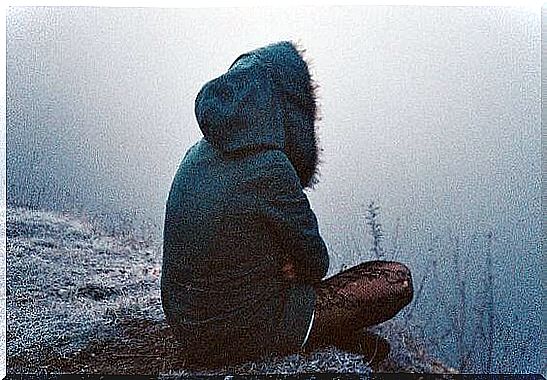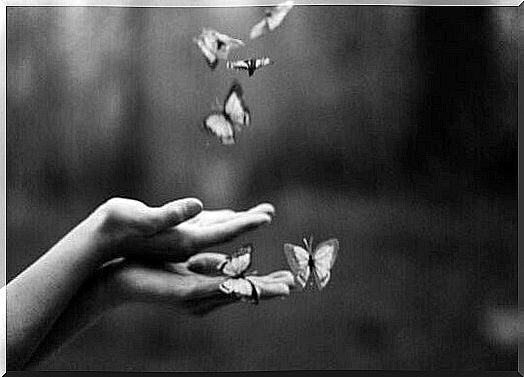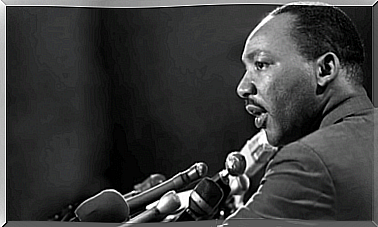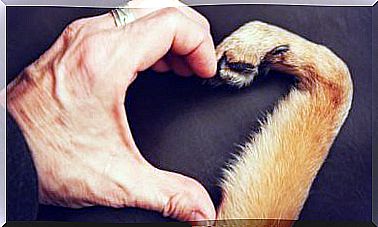When Friends Let Us Down

Friendships also end, they are extinguished like the light of the firefly when it is discovered, like the first cold wind of autumn after summer. There are people who disappoint us and the wound they inflict hurts us and makes us angry, there is no doubt. However, as time goes by, we learn to be much more selective.
As curious as it may seem, in friendship and in love the same thing happens: we have the people we believe we deserve next to us. This has a lot to do with self-esteem, with our ability to apply filters and to understand that relationships, whatever they are, are dynamic entities that change and mutate like our own identity.
Now, there are those who argue that “losing a love hurts, but losing a friendship kills”. It is as if in some way this bond based on complicity, on intimate and spontaneous company, on that emotional “nourishment” was more important than the couple’s relationship.
It must be said that there are not many studies on friendship and the underlying dynamics, at least making a comparison with the love and couple theme. However, existing research in social psychology reveals a very interesting fact: losing a friendship is as bad as losing a love.
A study published in the journal Epidemiology and Community Health highlighted how this feeling is experienced equally by men and women. A friend is, for most people, an indispensable part of everyday life, to the point of becoming essential to achieve physical and economic well-being.

When we don’t know how to “close” with a friend
Bianca is 40 years old and has decided to end a friendship that has lasted for years. In fact, this friendship has accompanied her throughout her life. She and Elisa grew up together because their mothers were friends. That little girl with brown eyes, long legs and an authoritative voice has become for Bianca a refuge, but also a hell.
When they were little girls, Elisa forced her to do things she didn’t want. She broke her arm when she tried to climb the school wall just because Elisa asked her to. He confided his first secrets and first loves to Elisa. And it was Elisa who “stole” all the boys she liked from her. During these years, Bianca has maintained a co-dependent friendship with a manipulative person, a person who did not know how to turn away or to say “stop taking advantage of me”.
It is possible that many of you identify with this example, but the key question is: why do we struggle to end a friendship that causes us more problems than benefits? Here are some possible explanations.
Reasons why we are reluctant to say “enough” to a friend
The first reason is simple: we think we need to be loyal to that person. Perhaps because we have shared many experiences, because we have spent many years together and we have exchanged many confidences. We must be clear about one thing, though:
- In any relationship, whether it be a couple or a friendship, there must be balance and reciprocity. Because loyalty to someone loses its meaning if there is no respect, if there is no real correspondence.

The second reason has to do with the idea of being able to change others. We tell ourselves that we must be patient, that what has happened will not be repeated if we give that friend a warning, if we tell him what offends us, hurts us or disappoints us.
- Another aspect that is undoubtedly worrying and that interests many people is to think that one has the friends that one deserves. We try to convince ourselves that we all “make mistakes”, that we all have defects and that sometimes it is normal to do harm without wanting to.
Sometimes the fear of loneliness leads many people to carry the burden of highly harmful, wearing and toxic friendships on their shoulders. It is not ideal, so it is necessary to remember one thing: beautiful friendships are those that make us feel good every day, that do not want to change us, but push us to improve as human beings because we ourselves know that we deserve well-being, balance and happiness. .
Disappointment in friendship leads to a decision
Gretchen Rubin, author of the bestselling Happiness Project , explains that many of us move forward in life with the feeling of drifting. It is an interesting concept because, as the author herself explains, going adrift curiously means making the decision to “not decide” what we want and don’t want in our life.
Not making decisions or postponing them means living surrounded by a surrogate of happiness in which we remain attached to insignificant interpersonal relationships, to people who continually disappoint us and who, despite this, we continue to have next to us. We do this in the name of loyalty or fear of being alone, as we said earlier.
We must be clear that the years of childhood and adolescence have passed in which we did not use filters, in which we let anyone in because we were eager for experiences, emotions and novelty. Above all, maturing means being selective and seeking quality in all our relationships.

Disappointments, if provoked gratuitously and repeatedly, give us a pretty clear clue about the human quality of the person who hurts us. Therefore, we must act and make a decision, even if it hurts, even if that friendship has accompanied us all our life, because if it makes us feel bad; if it hurts our heart, then it is not friendship.
We learn to be selective, to value true friendships, the most magical and exciting ones. Those that always teach us something, those that give us so much and to whom we give so much, those that help us develop the best version of ourselves.









